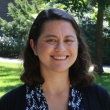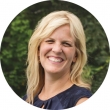Global Citizenship Internships
These internships provide students the opportunity to work with international organizations and communities around the world and hone cultural competency leadership skills.
Click on the links below to explore internship opportunities in these areas:
- Arts and Culture (North Africa and Iceland)
- Science and Policy (Europe)
- Political Systems and Governance (Latin America)
- Women and Families (Latin America)
- Education, Health, and Agriculture (Asia)
- Recent Global Citizenship Interns
Please note: Some international internships are virtual due to the ongoing pandemic and organizational shifts to remote work. For in person internships, travel to any listed locations are subject to approval by Wellesley College’s International Safety Committee.
Eligible class years: Sophomores and Juniors. Also there is a general preference for students applying outside of their place of residency (e.g., U.S. citizens outside of their home area, and internat’l students outside of their home country).
To apply: For more information about our Signature Internships and application process, please consult our Signature Internships Website. Applications are open in Workday during our Fall application cycle (Oct. 1 - Nov. 1). *A limited number of sites are open for the SPRING Application Cycle (Feb. 1 - March 1) and are noted below. These sites are Asian Rural Institute, Center for Cross-Cultural Learning, Observer Research Foundation, Roots of Health, and VIDYA. Please read job descriptions below.
ARTS & CULTURE
Internships in organizations in Morocco and Iceland that help preserve and promote cultural history and language diversity.
SCIENCE AND POLICY
Internships in organizations that focus on science and policy work to advance knowledge and solutions to global problems like climate change.
POLITICAL SYSTEMS & GOVERNANCE (LATIN AMERICA)
Internships in organizations that tackle political and community change and advocate for knowledge and resources at the grassroots level or through an internationally-recognized NGO in Latin America.
WOMEN & FAMILIES (LATIN AMERICA)
Internships in organizations that serve women and families in Latin America.
EDUCATION, HEALTH, & AGRICULTURE (ASIA)
Internships in organizations that increase access and program quality to health-related resources.
RECENT GLOBAL CITIZENSHIP INTERNS
2023
- Alice Dricker '24, Fondation Jardin Majorelle, Marrakech, Morocco (In-person)
- Ariel Smith '25, Fondation Jardin Majorelle, Marrakech, Morocco (In-person)
- Ana Fernández ‘23, Fundación En Vía (In-person)
- Bianey Douglas ‘24, Fundación En Vía (In-person)
- Parker Phillips ‘24, Fundación En Vía (In-person)
- Bella Kim-LaTona '25, The Museum of Everyday Life, Isafjörður, Iceland (In-person)
- Cameron Li '25, China Market Research Group, Shanghai, China (In-person)
- Carolyn Nee '24, Center for Cross-Cultural Learning, Rabat, Morocco (In-person)
- Clementine Starck '24, Asia Rural Institute, Tochigi, Nasushiobara, Japan (In-person)
- Jenna Stephenson '25, Observer Research Foundation, Mumbai, India (In-person)
- Julien Barriere '24, Roots of Health, Puerto Princesa, Palawan, Philippines (In-person)
- Kerou Hu 25, Center for Cross-Cultural Learning, Rabat, Morocco (In-person)
- Lucy Montgomery '25, Tangier American Legation Institute for Moroccan studies (TALIM), Tangier, Morocco (In-person)
- Madeleine Speagle '24, Asia Rural Institute, Tochigi, Nasushiobara, Japan (In-person)
- Maheen Haq '24, Climate Analytics, Berlin, Germany (In-person)
- Nadia La Mar '24, Roots of Health, Puerto Princesa, Palawan, Philippines (In-person)
- Sofia Herandez Santillan '24, The Museum of Everyday Life, Isafjörður, Iceland (In-person)
- Sreyneang Loeurng '24, Observer Research Foundation, Mumbai, India (Remote)
2022
- Alexandra Brooks '23, Center for Cross-Cultural Learning, Rabat, Morocco (In-person)
- Bella Jung '24, Vieques Conservation & Historical Trust, Vieques, Puerto Rico, USA (Remote)
- Dhanya Srikanth '24, Observer Research Foundation, Mumbai, India (Remote)
- Hunter Dodrill '23, The Museum of Everyday Life, Isafjörður, Iceland (In-person)
- Janeva Dimen '23, Roots of Health, Puerto Princesa, Palawan, Philippines (In-person)
- Jess Yao '24, China Market Research, Shanghai, China (Remote)
- Julz Vargas '24, The Museum of Everyday Life, Isafjörður, Iceland (In-person)
- Kazu Shimada '23, Fondation Jardin Majorelle, Marrakech, Morocco (In-person)
- Leslie Blas '24, Fundación Poder Ciudadano, Buenos Aires, Argentina (Remote)
- Lidewij Florusbosch '24, Center for Cross-Cultural Learning, Rabat, Morocco (In-person)
- Maria del Granado '24, Fundación Poder Ciudadano, Buenos Aires, Argentina (Remote)
- Natalie Harris '23, Center for Cross-Cultural Learning, Rabat, Morocco (In-person)
- Parker Phillips '24, Vieques Conservation & Historical Trust, Vieques, Puerto Rico, USA (Remote)
- Rhea Murdeshwar '23, Fondation Jardin Majorelle, Marrakech, Morocco (In-person)
- Sachi Kaneshiro '23, Roots of Health, Puerto Princesa, Palawan, Philippines (In-person)
- Tarishi Gupta '24, Observer Research Foundation, Mumbai, India (Remote)
2021
- Ashley Jang, ‘22, Roots of Health , Puerto Princesa, Palawan, Philippines
- Karyn Padilla, Programa de las Naciones Unidas para el Desarrollo (PNUD), San José, Costa Rica
- Patrizia Troccoli Dragonetti, ‘22, Programa de las Naciones Unidas para el Desarrollo (PNUD), San José, Costa Rica
- Alexandra Hussey, ‘23, Vieques Conservation and Historical Trust, Vieques, Puerto Rico, USA
- Anna Calderon, ‘23, Vieques Conservation and Historical Trust, Vieques, Puerto Rico, USA
- Charity Daramola, ‘22, Aga Khan Education Services, Kampala, Uganda
- Jordan Bates, ‘22, Aga Khan Education Services, Kampala, Uganda
- Junhee Kim, ‘24, Observer Research Foundation, Mumbai, India
- Maria Torres, ‘23, Fundación Poder Ciudadano, Buenos Aires, Argentina
- Alexandra DeWeese, ‘22, Center for Cross-Cultural Learning, Rabat, Morocco
- Anne Jiang, ‘23, Fondation Jardin Majorelle (Yves Saint Laurent), Marrakech, Morocco
- Ashton Craycraft, ‘23, Center for Cross-Cultural Learning, Rabat, Morocco
- Imane Outolla, ‘23, Tangier American Legation Institute for Moroccan studies (TALIM), Tangier, Morocco
- Mariama Seydi, ‘23, Fondation Jardin Majorelle (Yves Saint Laurent), Marrakech, Morocco
- Melina Rowin, ‘23, Tangier American Legation Institute for Moroccan studies (TALIM), Tangier, Morocco
- Savannah Roth, ‘22, Center for Cross-Cultural Learning, Rabat, Morocco
2020
- Campbell Lund, ’23, The Exploratory with STEMKit, Nsawam, Ghana
- Dominique Mickiewicz, ’22, Tangier American Legation Institute for Moroccan studies (TALIM), Tangier, Morocco
- Emily Zhai, ’21, Roots of Health, Puerto Princesa, Palawan, Philippines
- Jada Allison, ’22, Center for Cross-Cultural Learning, Rabat, Morocco
- Jane Kinsella, ’22, Tangier American Legation Institute for Moroccan studies (TALIM), Tangier, Morocco
- Julianna Kenny, ’22, Vieques Conservation and Historical Trust, Vieques, Puerto Rico, USA
- Leilani Aguila, ’21, Aga Khan Education Services, Kampala, Uganda
- Nayanika Das, ’21, The Exploratory with STEMKit, Nsawam, Ghana
- Olivia Hatten, ’21, Aga Khan Education Services, Kampala, Uganda
- Renee Chen, ’21, Center for Cross-Cultural Learning, Rabat, Morocco
- Sarah Most, ’22, Fundación Poder Ciudadano, Buenos Aires, Argentina
- Sophie Lemmerman, ’22, Center for Cross-Cultural Learning, Rabat, Morocco
- Victoria Moura, ’22, Fundación Poder Ciudadano, Buenos Aires, Argentina
2019
- Aiyana Smith, ’21, Aga Khan Education Services, Kampala, Uganda
- Amelia Forman, ’21, Programa de las Naciones Unidas para el Desarrollo (PNUD), San José, Costa Rica
- Anna Morgan, ’21, Fondation Jardin Majorelle (Yves Saint Laurent), Marrakech, Morocco
- Cierra Clark, ’20, Center for Cross-Cultural Learning, Rabat, Morocco
- Daniela Castro Perez, ’21, Operation ASHA, New Delhi, India
- Devanshi Gupta, ’21, Roots of Health, Puerto Princesa, Palawan, Philippines
- Dominiki Kurz, ’20, Roots of Health, Puerto Princesa, Palawan, Philippines
- Emily Prechtl, ’20, Center for Cross-Cultural Learning, Rabat, Morocco
- Emma Miller, ’20, The Exploratory with STEMKit, Nsawam, Ghana
- Evelyn Vivar, ’20, Vieques Conservation and Historical Trust, Vieques, Puerto Rico, USA
- Genevieve (Gen) Brittingham, '21, Fundación Poder Ciudadano, Buenos Aires, Argentina
- Grace Olson, ’21, Tangier American Legation Institute for Moroccan studies (TALIM), Tangier, Morocco
- Haruka Ueda, ’20, Center for Cross-Cultural Learning, Rabat, Morocco
- Jennifer Duan, ’21, Operation ASHA, New Delhi, India
- Jessie Huang, ’21, Observer Research Foundation, Mumbai, India
- Angelina Zhang, ’22, The Exploratory with STEMKit, Nsawam, Ghana
- Vita Solorio-Fielder, ’21, Fundación Poder Ciudadano, Buenos Aires, Argentina
- Julia Sokolowska, ’22, Aga Khan Education Services, Kampala, Uganda
- Laïssa Alexis, ’20, Tangier American Legation Institute for Moroccan studies (TALIM), Tangier, Morocco
- ika Thakkar, ’21, Fondation Jardin Majorelle (Yves Saint Laurent), Marrakech, Morocco
- Paloma Quiroga, ’21, Vieques Conservation and Historical Trust, Vieques, Puerto Rico, USA
- Rachel Berets, ’21, Center for Cross-Cultural Learning, Rabat, Morocco
- Sophia Ashebir, ’21, Observer Research Foundation, Mumbai, India
- Sydney Kuo, ’20, Roots of Health, Puerto Princesa, Palawan, Philippines
2018
- Kristen Adams ’20, Center for Cross-Cultural Learning, Rabat, Morocco
- Aliza Amin ’20, Center for Cross-Cultural Learning, Rabat, Morocco
- Denisse Becerra ’19, United Nations Development Program, San José, Costa Rica
- Emma Burke ’20, Aga Khan Educational Services, Kampala, Uganda
- Francesca Dong ‘19, billionBricks, Mumbai, India
- Clare Doyle ’20, Poder Ciudadano, Buenos Aires, Argentina
- Marika Dy ’20, Operation ASHA, New Delhi, India
- Gabby Jerz ’19, Instituto de Presquisas da Biodiversidade, Iporanga, Brazil
- Elizabeth Lambert ’20, Baan Dada, Sangkhlaburi, Thailand
- Gabriella Liu ’19, ORT SA CAPE, Cape Town, South Africa
- Zulia Martinez ’20, Cultural Institute of Puerto Rico, The Fontin Conde de Mirasol Museum, Vieques, Puerto Rico
- Kimberly Min ’19, Observer Research Foundation, Mumbai, India
- Luci Navas-Sharry ’19, Poder Ciudadano, Buenos Aires, Argentina
- Tine Oginga ’20, Aga Khan Educational Services, Kampala, Uganda
- Sofia Ramirez ’20, Observer Research Foundation, Mumbai, India
- Melanie Rumbel ’20, Operation ASHA, New Delhi, India
- Sara Shin ’19, ORT SA CAPE, Cape Town, South Africa
2017
- Aida L. A. Abou-Zamzam ‘19, Operation ASHA, Phnom Penh, Cambodia
- Malak Alsayyad ‘19, Center for Cross-Cultural Learning, Rabat, Morocco
- Alexandra Beem ‘18, Roots of Health, Puerto Princesa, Palawan, Philippines; The Partnership for Health in Vietnam, Hanoi, Vietnam
- Zoe W. Borghard ‘18, The Vieques Conservation & Historical Trust, Vieques, Puerto Rico
- Adeline H. Du Crest ‘19, Center for Cross-Cultural Learning, Rabat, Morocco
- Caroline R. George ‘19, Operation ASHA, New Delhi, India
- Darlene Harsono ‘19, Sisters of the Holy Cross Convent, Mungod, India
- Daniela Kreimerman-Arroyo ‘19, Fundación Poder Ciudadano, Buenos Aires, Argentina
- Emma M. Magee ‘19, Asociación de Parálisis Cerebral y Otras Afecciones Similares (ACPACYS), Córdoba, Spain
- Zoe A. Matticks '18, Roots of Health, Puerto Princesa, Palawan, Philippines; The Partnership for Health in Vietnam, Hanoi, Vietnam
- Monica M. Naranjo DS‘18, Programa de las Naciones Unidas para el Desarrollo, San Jose, Costa Rica
- Bridget A. Peak ‘19, Parinaam Foundation, Bengaluru, India
- Silvia E. Pera ‘18, E!State Liberis, Italy
- Lianet Rosado ‘19, Observer Research Foundation, Mumbai, India
- Laura C. Scanlon ‘19, Aga Khan Educational Services (AKES), Mumbai, India
- Janjan Sun ‘19, The Henry Jackson Society, London, England
- Amelia Tam ‘18, Fundación Poder Ciudadano, Buenos Aires, Argentina
- Madeline C. Taylor, Stiftung Frauenkirche Dresden, Germany
- Hema Venkata ‘19, Operation ASHA, New Delhi, India
- Lucy A. Wanzer ‘19, The Vieques Conservation & Historical Trust, Vieques, Puerto Rico
- Liah L. Watt ‘19, The School of St. Jude, Arusha, Tanzania
- Naomi L. Whitney-Hirschmann ‘19, Entwicklungspolitisches Netzwerk, Dresden, Germany
- Rebecca A. Winterich-Knox ‘18, The Peggy Guggenheim Collection, Venice, Italy
2016
- Erica B. Chalmers ’18, Aga Khan Educational Services, Mumbai, India
- Olivia B. Duggan ’17, Sisters of the Holy Cross Convent, Mundgod, India
- Kanupriya Gupta ’18, Operation ASHA, New Delhi, India
- Silpa Karipineni ’18, Operation ASHA, New Delhi, India
- Amanda S. Lee ’17, Sisters of the Holy Cross Convent, Mundgod, India
- Maureen J. McCord ’18, Observer Research Foundation, Mumbai, India
- Grace R. Ming ’18, Observer Research Foundation, Mumbai, India
- Karen Moorthi ’18, Parinaam Foundation, Bengaluru, India
- Jessica A. Santero ’17, Sisters of the Holy Cross Convent, Mundgod, India
- Ivonne L. Marmolejo ’17, United Nations Development Program, San José, Costa Rica
- Nathalie Cortes ’17, Poder Ciudadano, Buenos Aires, Argentina
- Jocelyn M. Santiago ’17, El Museo de Arte de Ponce, Ponce, Puerto Rico
- Madeline M. Cahillane ’18, Vieques Conservation and Historical Trust (Wintersession), Vieques, Puerto Rico
- Sofía C. Diaz de Villegas ’17, Vieques Conservation and Historical Trust, Vieques, Puerto Rico
- Kara M. Banson ’17, Roots of Health, Puerto Princesa, Philippines





